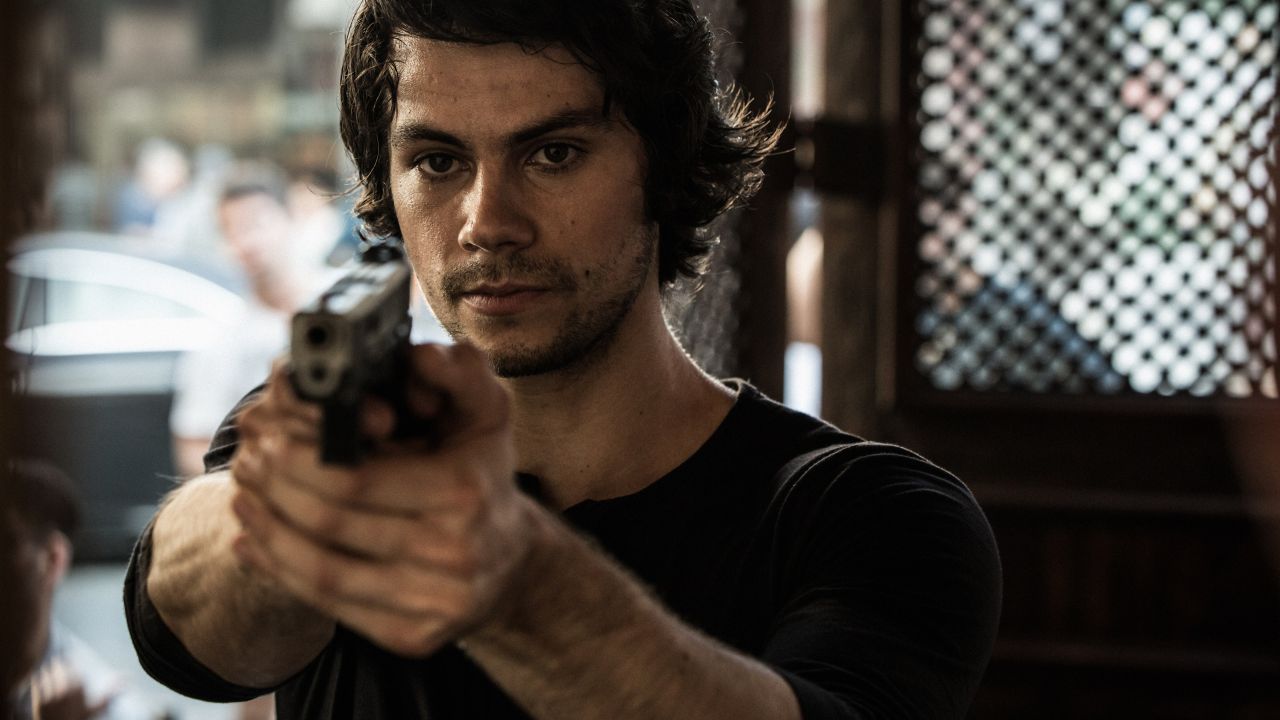Sometimes the moment has passed on making a particular type of film. The time of the post-9/11 spy thriller has passed in popular culture, and with it has gone the era of handheld shaky-cam to deliver us our action beats. It’s not surprising then that American Assassin, an ostensible adaptation of the late Vince Flynn’s novel by the same name, spent about a decade in production hell, never quite coming together when the American spy thriller was at its modern height and feeling immediately dated in its jingoism and America First politics.
In the aftermath of a terrorist attack that kills his fiancée, Mitch Rapp (Dylan O’Brien) devotes his life to hunting the terrorist who led the attack. When he tracks down the cell responsible and is subsequently captured, he is rescued and recruited by the elite CIA subdivision Orion, led by Irene Kennedy (Sanaa Lathan). Under the tutelage of renowned handler Stan Hurley (Michael Keaton), Mitch is trained to become a secret agent so that he and his team may take down a rogue agent bent of doing violence to the United States.
On a basic character arc plotting level, American Assassin makes minimal sense as Mitch Rapp is seemingly immune from consequences for every boneheaded move he makes. It’s demonstrated early on that Mitch is only capable of demonstrating a baseline level of barely contained rage, and this leads him to make reckless mistakes that place himself and others in mortal danger. One would think this would set up an arc for Mitch wherein he learns the value of teamwork, set against a former CIA agent who feels abandoned by the United States after he similarly acted counter to orders, but Mitch is a consistent reactionary who breaks rules on instinct or whim without ever seeming to learn that his actions have consequences. Sure, he gets positive results because the plot dictates it, but it’s patently unbelievable that anyone in authority would allow such a loose cannon to progress through training as he does, even as those same authorities repeatedly voice their well-founded doubts in being able to control Mitch.
As mindless action fare, American Assassin fares a little better, but not by much. The action beats rely on aping Bourne-style handheld camera work that is meant to be thrilling but instead comes across as merely disorienting, which was likely intentional to hide some noticeable issues with continuity and characters’ placement in a set’s geography. Tonally the film exists somewhere between the relatively apolitical leanings of the Bourne films and the hardcore jingoism of London Has Fallen, which supposedly lends itself to a self-serious realism yet can’t help but feel like a fetishistic conservative power fantasy. After all, Mitch is a rage-fueled consequence-free killer with a vendetta against brown people, who are in turn easily manipulated by a similarly competent white villain; this is racist pulp fantasy disguised as geopolitical melodrama that doesn’t effectively function as either.
More than anything, American Assassin is a film that severely overestimates how seriously it should take itself. This is the kind of narrative where a nuclear bomb goes off—with admittedly impressive special effects given the film’s modest budget—but there are minimal immediate casualties or political repercussions, and we’re supposed to take the protagonist’s grim scowl and determination without a hint of irony. Sorry, but that just doesn’t work for an audience with any interest in engaging intelligently with the material, and the lack of recognition of just how silly the whole proceeding is sinks the whole production as a result. This might have flown ten years ago when post-9/11 fervor still drove audiences to root for this sort of propaganda without much scrutiny, but that time has long passed and it is about time we stopped indulging this kind of American supremacy as something to be taken seriously. Treat American Assassin as the joke it is and opt out of giving it your time or money.













